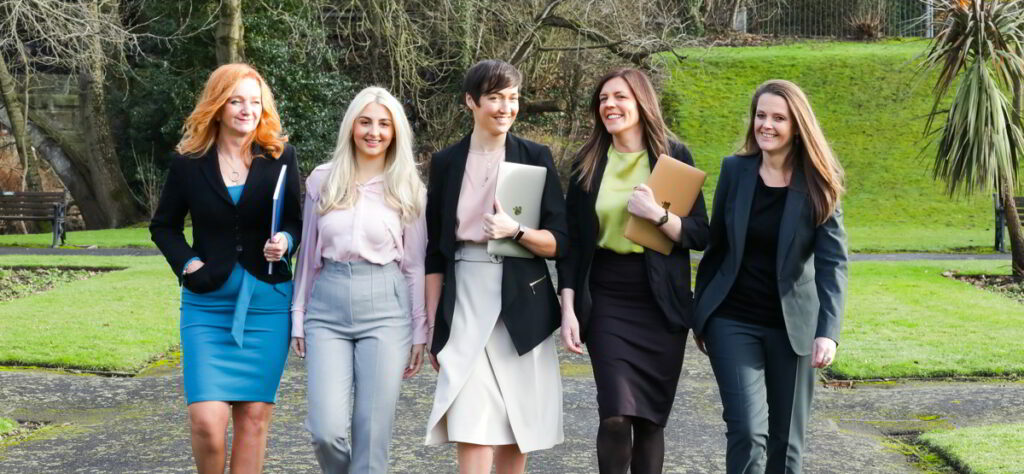A Guide To Donors, Surrogacy & Parenting
As you would expect with such a highly emotive and extensive topic, there are wide array of different parenting issues to consider as an LGBTQIA+ parent with children already or intending to have children.
We have listed some of the key topics below for you to read through. Should you have any questions you would like answering specific to your situation, please request for your free initial consultation where one of the solicitors would be more than happy to help.
What Is and Who Has Parental Responsibility (PR)?
This is defined as all of the rights, duties, powers and responsibility a parent has.
This is important as it can define what steps a parent or co-parent can take in relation to the child.
A birth mother automatically has PR.
If the mother is in a civil partnership or married at the time of conception then the non-birth mother can be registered as the 2nd legal parent on the birth certificate.
This is whether the insemination was at a licensed clinic or not.
If the parents are not married or in a civil partnership then in order for the 2nd Parent to become a legally recognised parent the insemination must take place at a licensed clinic where all the necessary consent forms can be signed and the 2nd parent can then be named on the birth certificate and will have PR
Alternatively, if insemination does not take place a licensed clinic and the 2nd parent wishes to have PR. A step-parent PR Agreement can be entered into, but the consent of everyone with PR will be needed or it will be necessary to make an application to the court for a Child Arrangement Order or adopt the child.
What Legal Rights Do Donors Have?
A donor donating through a registered clinic has no legal rights or responsibilities in relation to the child/children.
Many couples however look to friends to help them conceive. Although this may seem simple and straight forward, it can create difficulties in the future if it is not discussed at length with the intentions and responsibilities clearly outlined.
A known donor is not afforded the same protection as an anonymous donor through a registered clinic.
It is sensible to consider all matters at the outset and have this drawn up into a Donor Agreement.
This can set out what is intended of each party, perhaps in relation to maintenance, contact and a party’s general involvement during the child’s life. The Agreement is however not legally binding.
The best that one can hope for is that the court takes it into account as evidence of the party’s intentions if a dispute arises in the future.
The donor cannot automatically make an application for a Child Arrangement Order as they have no legal standing and will need leave (permission) of the court.
A donor’s relationship with the child is an important factor and there is now case law on the issues considered by the court for a leave application and the substantive application. There are therefore risks to “home insemination” with a “known donor”.
The Human Fertilisation and Embryology Act 2008
Matters changed massively with the introduction of the HFEA. The Act recognises same sex couples as legal parents of children conceived through the use of donated sperm, eggs or embryos.
This replaces the requirement that clinics consider the child’s “need for a father” with a requirement to consider the need for “supportive parenting”, making it clear that treatment should be available to single women and same sex couples.
From 1st October 2009 the Act also amended the information and rights available in connection with donor conception, giving new rights to donor-conceived children to contact their genetic siblings.
Donor anonymity was lifted in 2005, allowing children conceived after this date to obtain identifying information about their donors upon reaching majority. This is not retrospective.
Legal Parents – The partner of a woman who carries a child can be the child’s legal parent and named on the birth certificate as a second legal parent in place of a “father”.
- If the couple are married or civil partners at the time of conception, the non birth mother will be treated as the child’s second legal parent, irrespective of whether the artificial conception takes place at a clinic in the UK, at a foreign clinic, or at home.
- If the couple are not married or civil partners, the non birth mother will only be the child’s second legal parent if the couple conceive at a licensed clinic in the UK. This can be done when certain conditions are met, which includes the non birth mother giving notice that she consents to being treated as a parent and where the birth mother agrees to the second woman being so treated as a parent. This process has been tightened up lately after mistakes were made by several clinics which massively impacted on the families.
- Where such a woman is treated by virtue of being a civil partner or the agreed parenthood conditions above are met, then no man will be treated as the father of the child.
- As the second parent will be named on the birth certificate then they will automatically have PR and take the place of the “father” on the birth certificate.
What Are The Rules For Surrogacy Parents?
Surrogacy contracts are unenforceable in the UK, which means that it is a case of trusting each other to honour the agreement, both in respect of handing over the child, the payment of expenses and other issues.
It is also against the law for a third party (including a solicitor) to negotiate a surrogacy contract for payment.
The Law
The surrogate is the legal mother.
- If she is married, she and her husband (or wife/civil partner) will be the legal parents.
- If the surrogate is not married (or her spouse does not consent) there is a choice as to who is the second parent. The biological father is the legal father if no HFEA parenthood forms are signed. Alternatively, someone else (usually the intended mother or the non-biological father) can be nominated as the other parent. The forms must be signed after counselling and before conception.
If the child is born in England or Wales, the surrogate is responsible for registering the birth and will be registered as the mother (together with her spouse/ civil partner if he or she is the other legal parent).
The child can nonetheless be given the intended parents’ surname if everyone agrees.
If the surrogate is not married or in a civil partnership, then the other legal parent (one of the intended parents) can be registered as the father or second parent, provided he/she attends the birth registration.
If that intended parent is not the biological father, he/she will need to produce the HFEA forms signed before conception to nominate him/her as a parent.
Obtaining A Parental Order
A parental order makes the intended parents the legal parents of the child and permanently extinguishes the parenthood of the surrogate and her spouse.
Once a parental order is made, the birth will be re-registered to record both intended parents as the legal parents, and a new birth certificate will be issued.
The original birth certificate will be sealed as part of the Parental Order Register and will be accessible only to the child once he or she is over 18.
To obtain a parental order, the intended parents must satisfy the family court that the order is in their child’s best interests (welfare being the court’s paramount consideration).
The intended parents must apply for an order during the period of six months beginning with the day on which the child is born.
At the time the application is made, the child’s home must be with the intended parents and they must be domiciled in the United Kingdom.
There are strict conditions and the court must be satisfied that the woman who carried the child and any other person who is a parent, freely and with full understanding, agrees unconditionally to the making of the order.
A parental order secures the legal status of intended parents under UK law, and is needed even if the parents are already named on their child’s foreign birth certificate.
What Happens If You Don’t Obtain A Parental Order?
Without a parental order, one or both of the intended parents will not be a legal parent in the UK which means:
- The parents not having legal authority to make basic decisions about their child’s medical care and education
- Problems with inheritance and pension rights
- Legal complications if the parents separate or divorce or one wishes to move abroad
- Difficulty obtaining or renewing a British passport
- Social services involvement (and in some cases a criminal offence for parents who fail to notify social services about their situation)
- Needing to find and involve the surrogate in future key decisions and any legal proceedings relating to the child
Because UK law does not recognise the intended parents as the legal parents of their child from birth, there is a period of time until a Parental Order has been obtained during which the family is in legal limbo, even though the parents assume care of their child immediately from birth. The surrogate always has parental responsibility, giving her the authority to make decisions for the child. If she is married, her spouse shares parental responsibility with her. If she is unmarried, then the position depends on the circumstances:
- If the child is born outside the UK, neither intended parent has parental responsibility.
- If the child is born in the UK, then the intended parent registered on the UK birth certificate has parental responsibility (and if the intended parents are married or civil partners, the other intended parent can be given parental responsibility via a step-parent parental responsibility agreement).
Dealing With Payments for UK Surrogacy
It is a common misconception that it is illegal for parents to pay a UK surrogate more than expenses.
The issue of payments is simply a consideration for the family court, which must authorise payments of more than reasonable expenses before it can make a parental order.
There is no definition of reasonable expenses so the court must decide what is reasonable in each case and in practice often takes quite a relaxed approach.
There has been much case law with regards to surrogacy; around the time limits for applying, the amount of money that can be paid to the surrogate and jurisdictional issues; which is particularly complex as it is necessary to ensure that the legal requirements of the country the child is born in and UK law are complied with.
Child Arrangements Orders.
If a couple have a child together but they are not named on the birth certificate (for whatever reason) and so do not have PR then it will be necessary to apply for a child arrangement order for the child to “live with” as this will then confers PR.
Click here to read our full guide on child arrangement orders
This would be the same for a step-parent if the parent with PR does not consent.
If the ‘parents’ subsequently separate then hopefully an agreement can be reached in relation to whom the child/children should “live with” (residence) and when the other parent should “spend time with” the child/children (contact).
If there is however a dispute, then it is open to either party to make an application to the court (in some cases permission of the court may be required).
How the court deals with matters depends on the circumstances of each individual case the priority always being the welfare of the child.
Why use Sinclair Law Solicitors?

- Experts in assisting with same-sex family law matters
- Members of the UK LGBT Family Law Institute
- Proud sponsors of Proud 2 b Parents
- Free 30-minute consultation so we can get to know you and your individual situation
- Jargon-free friendly service
- An expert solicitor by your side helping you through every step of the process
- Our legal service costs are unrivalled by many larger law firms in South Manchester and Cheshire
- Transparent pricing with no nasty surprises
- Authorised and regulated by the Solicitors Regulation Authority
- Rated ‘Excellent’ by our clients on Google and Review Solicitors

What our clients tell us
“I approached Suzanne at the start of an extremely acrimonious separation, which involved our two children. As gay woman and the non birth mother, I was nervous about choosing a solicitor, with this being so important, but also finding one that would treat me with respect and support me.
Suzanne could not have been more inclusive, in fact, at no point did I ever feel anything other than a parent, irrelevant of my sexuality.
Over the last few years I have developed a trusting relationship with Suzanne, who has been caring and supportive. I have loved her no nonsense and honest approach.. at some points we have also had some fun, in what has been a very challenging part of my life.
I have subsequently recommended Suzanne to one of my closest friends and would have no hesitation in recommending her to anyone, who is unfortunate to find themselves in my situation, especially as a member of the LGBT community. In short she is ace!” – B, Client, February 2022
“Suzanne at Sinclair Solicitors supported me for approximately 3 years with an incredibly stressful private family matter. This was my first time navigating the family law system and from the outset Suzanne ensured that I was fully informed and aware of available options that could be pursued. Over this period I found Suzanne to be highly skilled yet empathetic, caring and responsive. She consistently went ‘over and above’ and is very dedicated to achieving the best outcome for you. Her approach is one that you feel like she is only acting on your behalf.
I found Suzanne via a recommendation and feel truly grateful for this. I would highly recommend Suzanne to anyone, especially those involving same sex family issues/matters.” – A, Client, February 2022




